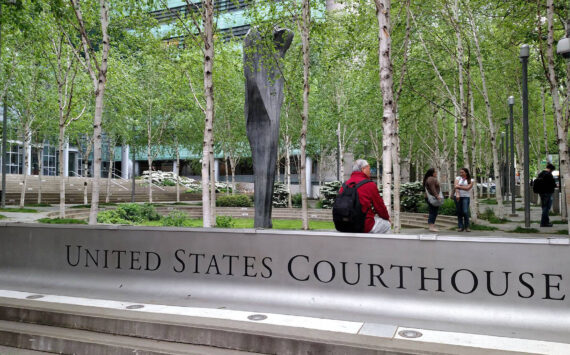Smokers received some bad news recently when a little-noticed provision of President Obama’s health care overhaul got a good look. Some may have choked on their cigarette to find out that they can be charged up to 50 percent more for health insurance under the Affordable Care Act. Here in Washington, where marijuana use just became legal, that raises a new question: Does the penalty apply to pot smokers? Stephanie Marquis, spokesperson for the state Insurance Commissioner’s office, says the federal rules aren’t entirely clear yet. The feds are in the process of creating a definition for smoking, which Marquis expects will mostly tackle issues like how often you need to smoke to be labeled a smoker. Once in the last twelve months? Once a day? But she doesn’t expect that the feds will delve into whether there’s a difference between tobacco and pot. Nor does Washington state law, which already allows insurance companies to charge smokers more, although only by up to 20 percent. “My understanding is that smoking is smoking–whether it’s cigarettes, cigars or pot,” Marquis says. Yet that stance doesn’t fit the scientific evidence, according to Donald Tashkin, a leading marijuana researcher and professor emeritus at the University of California at Los Angeles. Tobacco, he points out in an interview with Seattle Weekly, is responsible for well over a million deaths a year, from lung cancer and pulmonary and cardiovascular diseases. In contrast, he says, “I’m not aware of any deaths attributed to marijuana smoking,” with the exception of fatalities due to motor vehicle accidents caused by inebriation. In 2006, Tashkin came out with the results of the largest study ever to look at the possible link between marijuana and lung cancer. “The results were really negative,” Tashkin says. Even heavy pot smokers among the more than 2,2000 participants in the study, funded by the National Institutes of Health, were no more likely to develop lung cancer than non-smokers. “If anything,” Tashkin says, “there was an inverse effect.” Pot smokers were ever so slightly less likely to develop lung cancer. This is true, he elaborates, even though marijuana smoke is known to contain carcinogens. Tashkin theorizes that THC, a compound found in marijuana, is likely to provide a countereffect due to properties that can slow the growth of tumors. Tashkin’s 2006 study countered earlier work he participated in that suggested that pot was linked to lung cancer–work that the feds seized on in their anti-marijuana propaganda. He said that earlier work was marred by an inadequate control group, which was drawn from blood donors, who tend to be healthier than the general population. The feds didn’t seize on Taskin’s newer work, and they aren’t likely to now as they fill in the fine print on health reform rules. While Attorney General Eric Holder has demonstrated some tolerance of marijuana legalization in Washington and Colorado, his administration’s official line is still that pot is a dangerous drug. As for the state, Marquis says that the difference between tobacco and marijuana is an interesting question, but that her office is likely to defer to the federal definition of smoking when assessing requested rates. She guesses, however, that insurers aren’t likely to ask for a 50 percent smoker penalty in this state, given the much smaller figure already on the books here. Marijuana activist Philip Dawdy guesses that pot smokers might catch a break for another reason: Insurers won’t be able to tell who smokes weed and who doesn’t. “It’s obvious with cigarettes,” he says. “Your fingers smell, your clothes smell. With pot, it’s easier to keep a secret.”
More Stories From This Author
Man found guilty of robbing multiple people in King County
2-hour carjacking spree in 2022 covered Kent, Bellevue, Redmond, Seattle and ended in Renton
By
Joshua Solorzano • January 29, 2026 4:55 pm
Renton man charged in fatal Seattle shooting
The alleged assault occurred at a hookah lounge following a physical altercation.
By
Joshua Solorzano • January 8, 2026 9:13 am
King County accepting flood debris for free
Three stations will take your garbage and yard waste on weekends through Jan. 11.
December 22, 2025 12:00 pm







